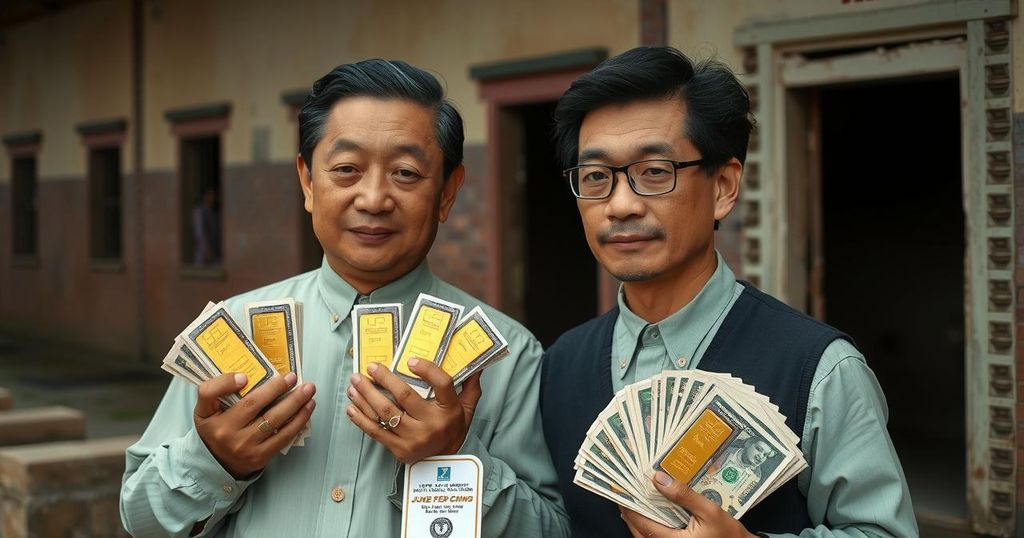Three Chinese nationals were arrested in the DR Congo with 12 gold bars and $800,000 in cash, highlighting illegal mining issues in the region. Authorities conducted a covert operation, prompted by previous controversial releases of other Chinese suspects involved in gold mining. The situation reflects ongoing exploitation of the DR Congo’s mineral wealth amidst instability and external influences, prompting legal actions against foreign corporations over conflict minerals.
Authorities in the Democratic Republic of Congo (DR Congo) have arrested three Chinese nationals found in possession of 12 gold bars and $800,000 in cash. According to South Kivu provincial governor Jean Jacques Purusi, the valuables were discovered concealed beneath the vehicle seats during a covert operation in the Walungu region. This operation was conducted in secrecy following the controversial release of other Chinese nationals previously implicated in an illegal gold mining operation. Governor Purusi emphasized that the mining sector in eastern DR Congo is fraught with challenges, including militia control and connections between dealers and influential figures in the capital, Kinshasa.
The mineral-rich eastern DR Congo is notorious for the exploitation of its resources, including gold and diamonds, which have been plundered by foreign entities since colonial times. This has been a significant factor contributing to the ongoing instability in the region for the past three decades. While militia leaders profit from the illegal sale of minerals, attempts to regulate this sector have been met with obstacles, including problematic relationships between foreign dealers and powerful local elites.
Purusi’s concerns were compounded by the recent release of 17 Chinese individuals who had been arrested for operating an illegal gold mine and who reportedly owed the government approximately $10 million in taxes and fines. The Chinese embassy has yet to comment on the situation. Additionally, these events unfold against a backdrop of escalating conflict in neighboring North Kivu province, where a Rwanda-backed rebel group has gained significant territorial control.
Adding to the complexities of this scenario, the DR Congo government has initiated legal action against Apple, alleging their supply chains are linked to conflict minerals sourced from the region. The Congolese authorities contend that these practices perpetuate cycles of violence, including financing militia activities and contributing to issues such as child labor and environmental degradation.
Consequently, the recent arrests underscore deeper issues within the region’s mining sector and draw attention to the pervasive influence of foreign interests in the exploitation of Congolese resources.
The Democratic Republic of Congo is endowed with significant mineral wealth, including gold, diamonds, and minerals essential for modern technology. Unfortunately, this resource abundance has attracted foreign exploitation, resulting in persistent instability and conflict in the region. Control of mines by militia groups further complicates the situation, leading to rampant illegal mining and trade, which hampers local governance and development efforts. Additionally, challenges persist in regulating foreign entities engaged in resource extraction, further exacerbating the situation.
The arrest of three Chinese nationals in the Democratic Republic of Congo, who were found with significant quantities of gold and cash, highlights the ongoing exploitation of the region’s mineral resources and the entangled relationships that exist within its mining sector. This incident raises pressing concerns regarding the control and regulation of such abundant natural resources, amidst a backdrop of continuous conflict and foreign influence. The legal actions taken by the Congolese government against large corporations indicate a broader effort to address the detrimental impacts of illegal mineral trade on local communities and security.
Original Source: www.bbc.co.uk







